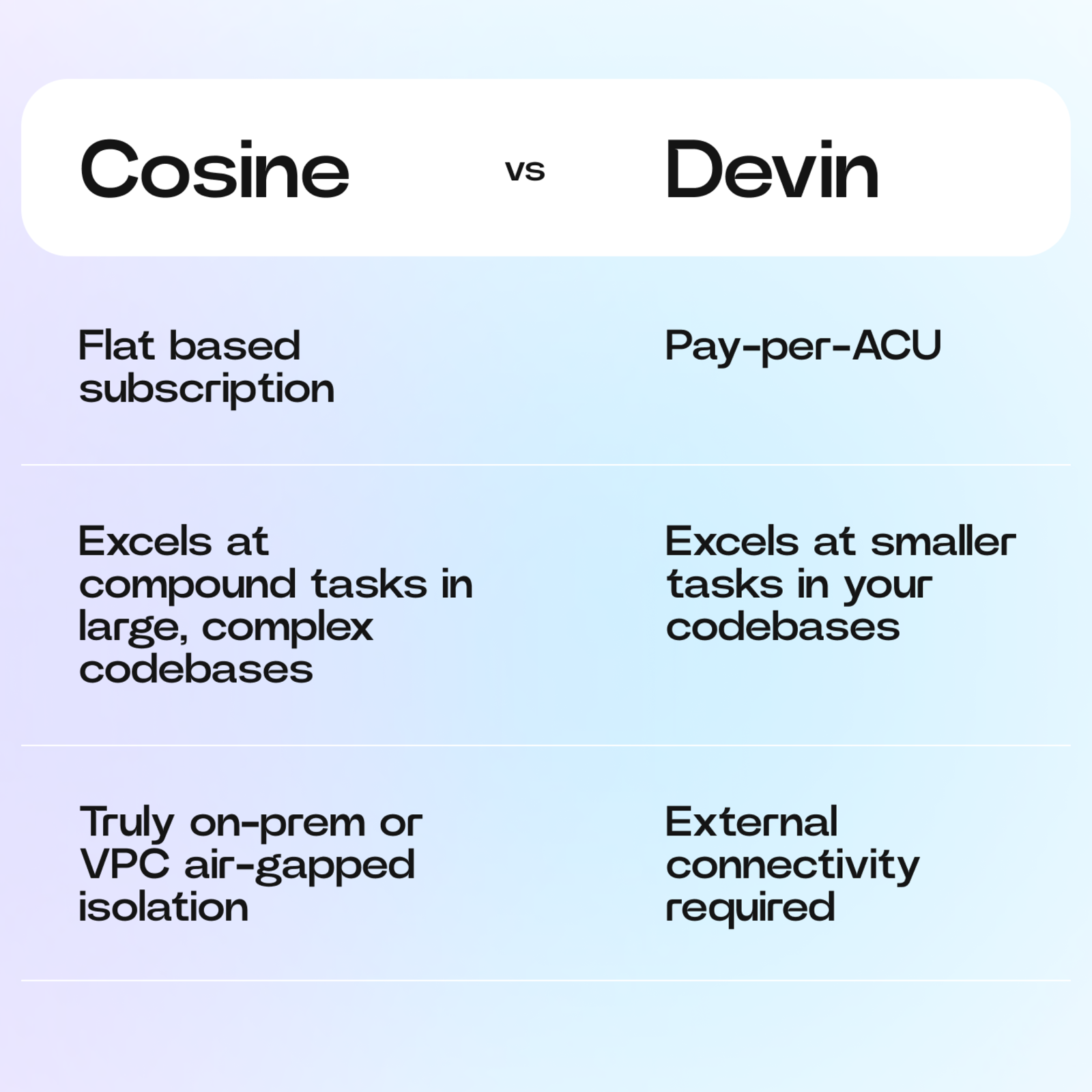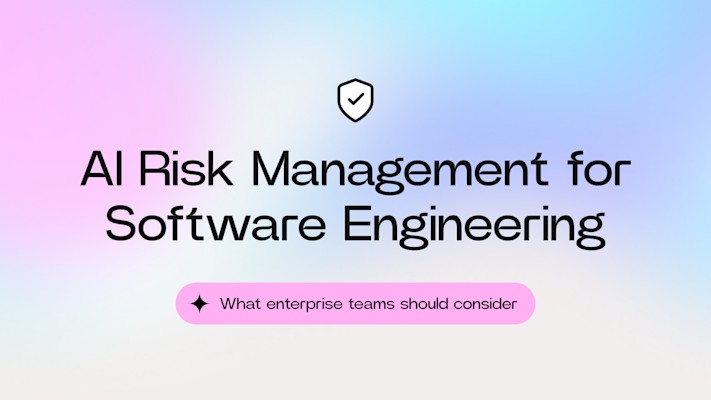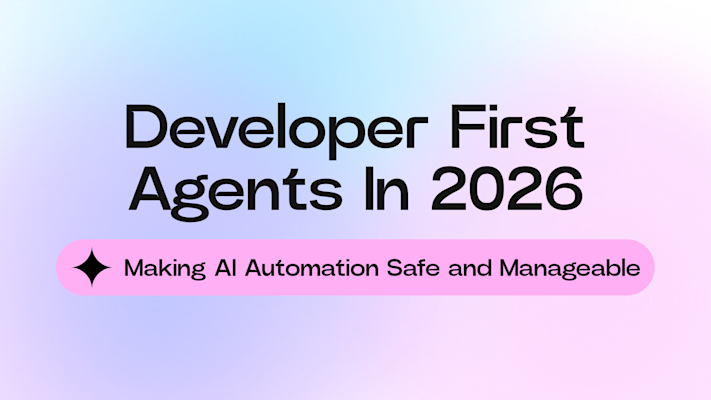If you’re comparing AI engineers, you’re really asking one question: who turns tickets into merged, working code with the fewest issues?
Enterprises are at a critical juncture when it comes to AI. Coding agents are becoming increasingly capable of handling engineer backlogs, freeing up developers to focus on innovation rather than more repetitive tasks.
Both Cosine and Cognition’s Devin are autonomous teammates with similar goals: truly agentic software engineering. The difference in Cosine’s approach is building custom tooling that an AI agent can utilise most effectively to deliver the best results. That meant building something ready to do the job – an agent and model that is uniquely designed to tackle compound tasks in messy, complex codebases.
Devin: write, run, and test code
Devin positions itself as a full-stack, autonomous software engineer. It can write, run, and test code.
It’s an attractive option if you want an AI that feels like dropping a junior developer into a codebase and watching them figure things out.
But there are a few tradeoffs engineers should consider:
Resource-heavy – Devin's ACU pricing charges based on the number of compute units used for tasks, which can vary and make costs unpredictable.
Compound Challenges – They claim that it runs best on smaller tasks, which means working on more complex tasks requires extra effort on your part.
Limited Parallel Sessions – Devin's core plan only allows up to 10 concurrent sessions, which limits how much you can achieve at once when evaluating its potential in messy codebases before upgrading.
If your use case is smaller tasks that you’d typically hand off to a junior developer, Devin can certainly be a good fit.
Cosine: built for compound tasks in real codebases
Cosine was designed with a different philosophy: AI should behave less like a junior developer and more like a scalable colleague embedded in your workflow. Integrating directly with your codebase, ticketing systems (Linear, Jira, GitHub, Slack), and CI/CD, Cosine delivers the most impact on real tasks in developer workflows.
Key points:
Truly asynchronous – Kick off 5, 50, or 100 tasks at once, then come back to review PRs later with Cosine’s native multi-agent reasoning; some of our customers are fixing 50+ bugs or building 20 feature variants to A/B test concurrently.
Custom-trained model (Genie 2) – Our Genie 2 model is trained on thousands of real engineering tasks, optimised to navigate large, unfamiliar codebases like a human engineer would and tackle compound tasks.
Predictable economics – We don’t believe in metered compute credits; you pay for usage as a scalable service with outcome-based pricing.
Cosine isn’t just about automating your coding tasks. It’s about giving your team an endless, reliable engineering resource. For instance, earlier this month, we released AutoDoc, a feature that continuously updates documentation on repos, designed and implemented by Cosine in just 35 minutes – a task that would have taken 7-10 days manually.
Which tool is right for you?
Devin’s strength is in routine, more repetitive engineering tasks. It can competently explore solutions in a way that feels close to how a junior engineer would work things out.
Cosine’s strength is autonomous alignment to your delivery path: open a PR, watch your CI, read the logs, review, then merge with the same approvals you trust today. It behaves like a dependable teammate who understands your needs and delivers outcome-driven results.
Both tools provide enterprise-grade security, though where Devin requires an external connection, Cosine is designed to deploy fully on-prem or VPC air-gapped isolation. What’s more, Cosine has built in audit logs and fine-grained access controls, ensuring full visibility and zero data leakage.

It’s only fair to put them to the test. Give each tool the same 5 real tickets. Ask for PRs that pass your CI. Measure: (1) number of green‑check merges, (2) reviewer effort, (3) rework required. If your team values shipping inside your existing GitHub/CI guardrails, Cosine will feel like the right hire, because we built it for exactly that.
Ready to see it on your codebase? Get started for free with Cosine, no credit card required, and hand over a couple of “annoying but important” tickets to start.


 @RobGibson20
@RobGibson20 

